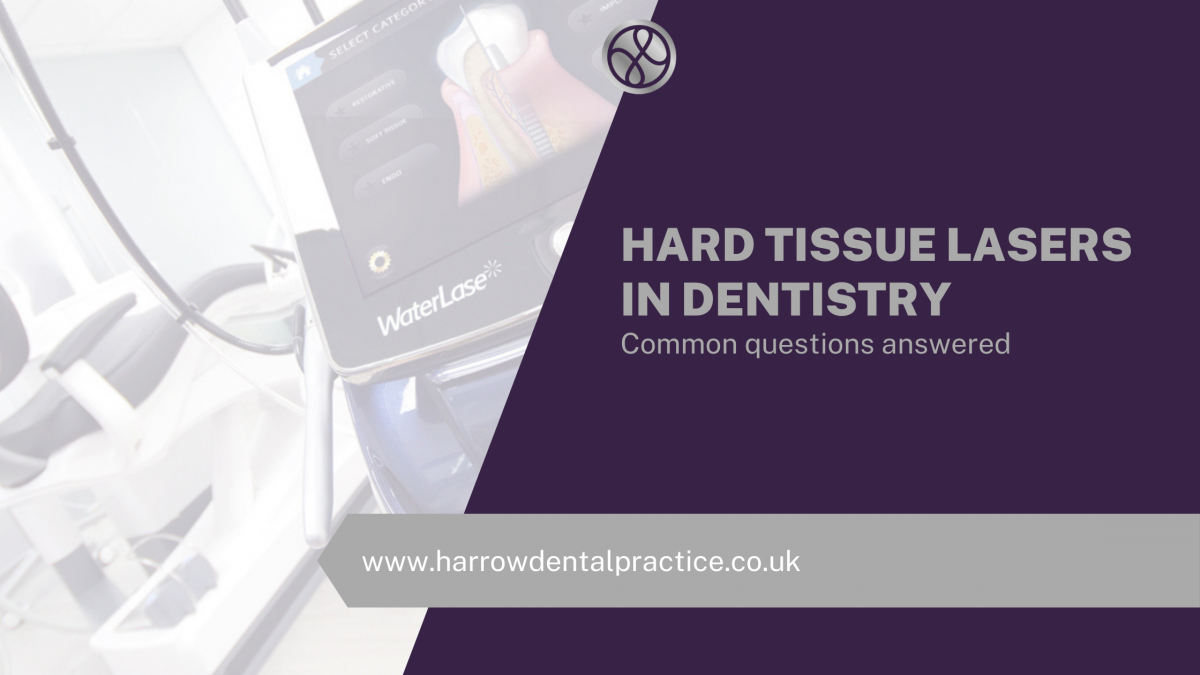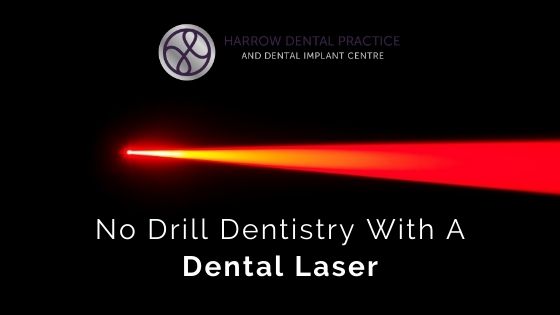Does the sound of a dental drill irritate you, or send chills down your spine? Would you rather bear the agony of a toothache than seek dental treatment? Would you prefer if there were simpler, less invasive approaches to provide dental treatment? If the answers to above questions is yes, there is good news for you. Thanks to laser dentistry, you don’t have to bear the irritating sound of a dental drill anymore. This blog discusses the various uses of hard tissues lasers in dentistry to provide less invasive and complication-free dental treatment. So, continue reading to learn more.
What Is Laser Dentistry?
Laser dentistry refers to the use of lasers to treat various dental conditions. Although lasers became commercially available in dentistry in 1989, they were not commonly used until a few years ago. Lasers offer a less invasive option for performing various hard and soft tissue dental procedures. Dental lasers create a high-energy, focused beam that can be used to cut or reshape dental hard and soft tissues.
What Is The Medical Application For A Laser In Dentistry?
The term LASER stands for “light amplification by stimulated emission of radiation”. Although not approved by the American Dental Association, The US Food and Drug Administration has approved lasers for the treatment of various dental conditions:
- Removing decayed tooth structure
- Treating dental hypersensitivity
- As an alternative to dental drill for reshaping or cutting bone tissue
- Treatment of gum disease and other soft tissue problems
- Soft tissue surgery
- To promote blood clotting and healing
- Teeth whitening
- Cancer treatment
How Big A Part Do Lasers Play In Dentistry?
Lasers were not commonly used in dentistry until a few years ago, when they were recognized as a safer, less invasive, and less painful option for performing dental procedures. The popularity and demand for lasers in dentistry is now increasing gradually. The day is not far when lasers will begin to play a pivotal role in dental treatment.
Is Laser Safe For Dentistry?
Dental lasers are generally regarded as safe for oral use. However, it must be noted that dental lasers have not yet gained approval from the American Dental Association. However, the ADA is cautiously optimistic regarding its future use in restorative dentistry. On the other hand, the US FDA has approved dental lasers for different dental treatments. Another important aspect is the skill and experience of the dentist using dental lasers. Naturally, dentists must undergo additional training and certification before offering treatment with dental lasers.
What Are The Advantages And Disadvantages Of Laser Dentistry?
Like every other dental technology, dental lasers have their merits and demerits:
Pros of Dental Lasers
- Safety
- Lesser soft and hard tissue damage resulting in less inflammation and quicker healing
- Promote blood clot formation and prevents post-operative tooth sensitivity
- Suitable for patients with fear of the sound of the dental drill
Cons of Dental Lasers
- High cost
- Not every dentist is trained to operate dental lasers
- Different lasers are needed for various dental procedures
Can Laser Help Treat My Gum Disease?
Many dentists nowadays use dental lasers for treating gum disease and performing gum surgery. For example, your dentist will use a soft tissue laser to remove the inflamed gum tissues from below the gum line and around the roots. Once the inflamed tissues have been removed, your dentist will use an ultrasonic scaler to remove the plaque and tartar deposits. In case there is gingival enlargement due to inflammation, your dentist will also remove the excess tissue with lasers. Finally, lasers can also be used for clinical crown lengthening.
How Has Laser Technology Changed The Dental Industry?
Lasers have entirely revolutionised the dental industry. Previously, many patients would simply avoid visiting their dentists or seeking treatment because they were afraid of the sound of the dental drill or could not bear to see the sight of blood. Thanks to dental lasers, many dental procedures such as tooth preparation for veneers, crowns, and bridges, tooth decay removal, and gum recontouring can be performed non-invasively. This is truly a blessing for patients with dental phobias. Besides, dental lasers also improve the clinical and esthetic outcomes of various dental procedures. For example, lasers can cut very precisely. So, the dentist can achieve excellent aesthetic results during tooth preparation or gum recontouring.
Which Is The Best Dental Clinic For Laser Dentistry?
If you are considering dental lasers for your treatment, there are several factors you must consider. First, you should visit a practice that has a dental team that specialises in therapy with lasers. The treating dentist should have acquired additional certification or training in laser treatment. Besides, the prospective dental practice must have a proven track record of successfully treating their patients with dental lasers. Another factor to consider is the type of dental lasers available at the dental practice you are considering, as different lasers are used for other dental treatments. Finally, you should select a dental practice that is either close to your home or office, so that you don’t have to spend time and money on travelling to and fro.
If you are looking for a dental practice offering laser dentistry services in Essex, look no more and visit Harrow Dental Practice. Our highly qualified and trained dental team guarantees effective and safe treatment with lasers in a comfortable and relaxing environment. So, download your free consultation voucher today and let us amaze you with the power of dental lasers.


 For many people, visiting the dentist’s office is nothing short of a nightmare. They would rather bear extreme toothache and discomfort, than dare step foot into a dental clinic.
For many people, visiting the dentist’s office is nothing short of a nightmare. They would rather bear extreme toothache and discomfort, than dare step foot into a dental clinic.